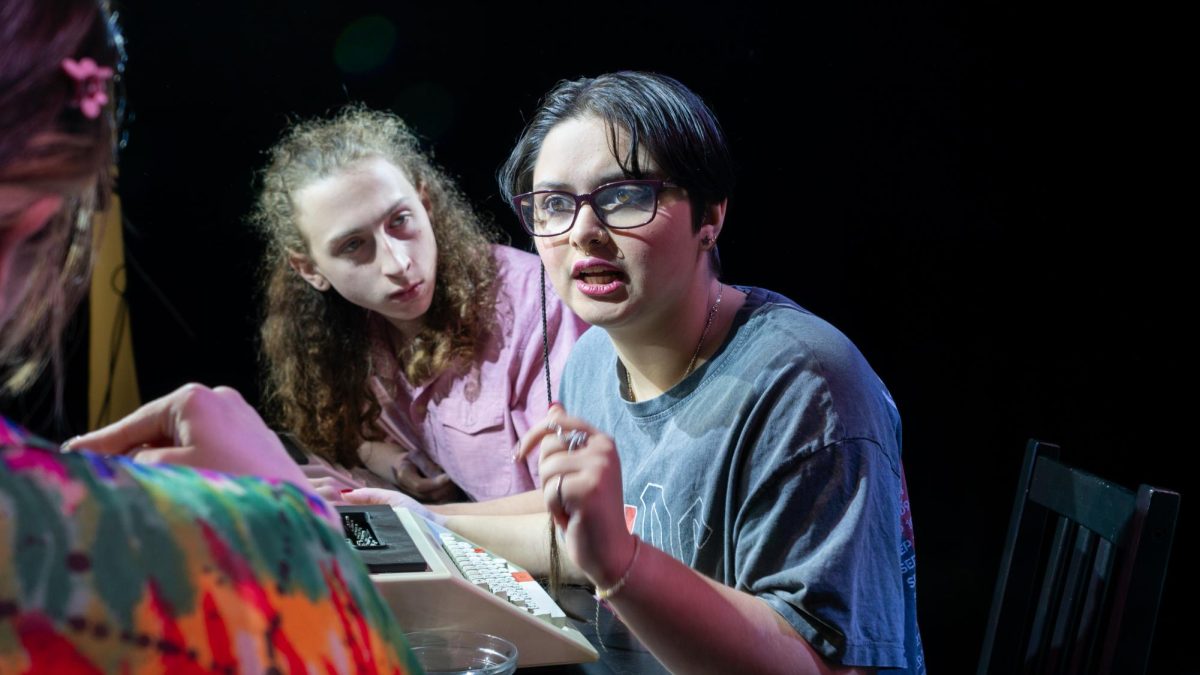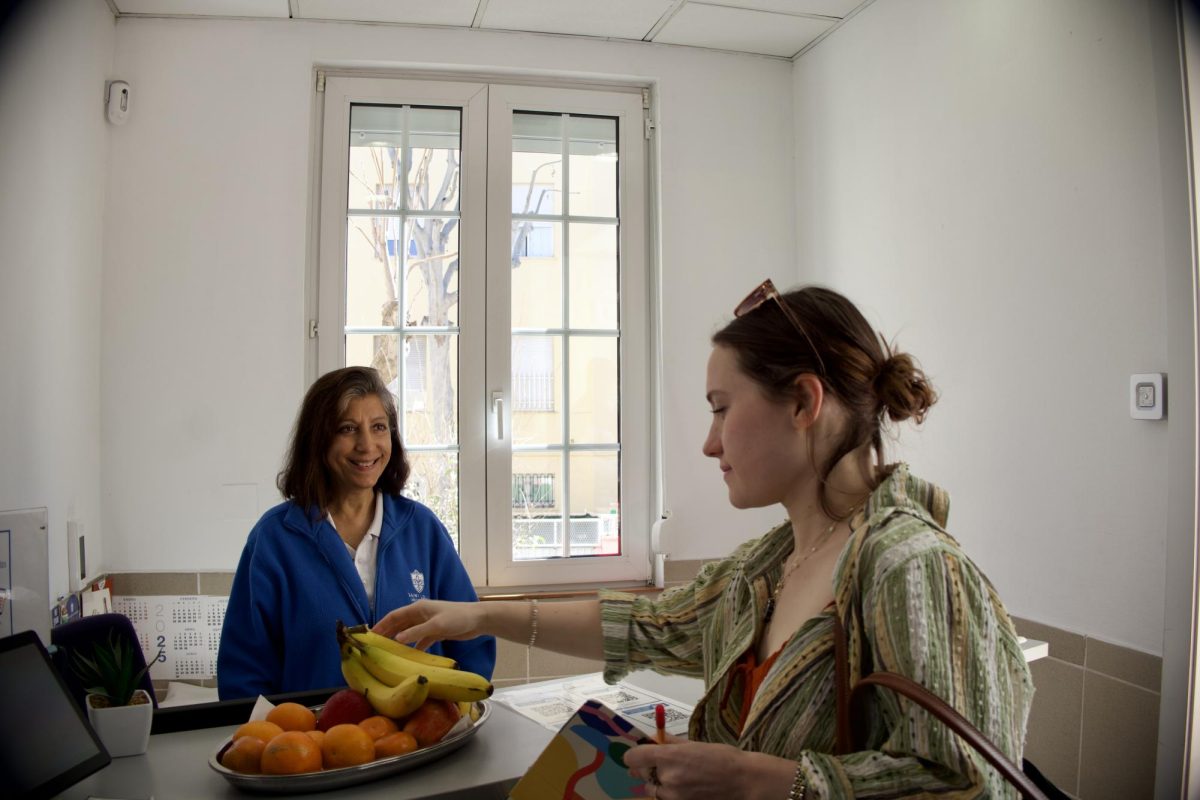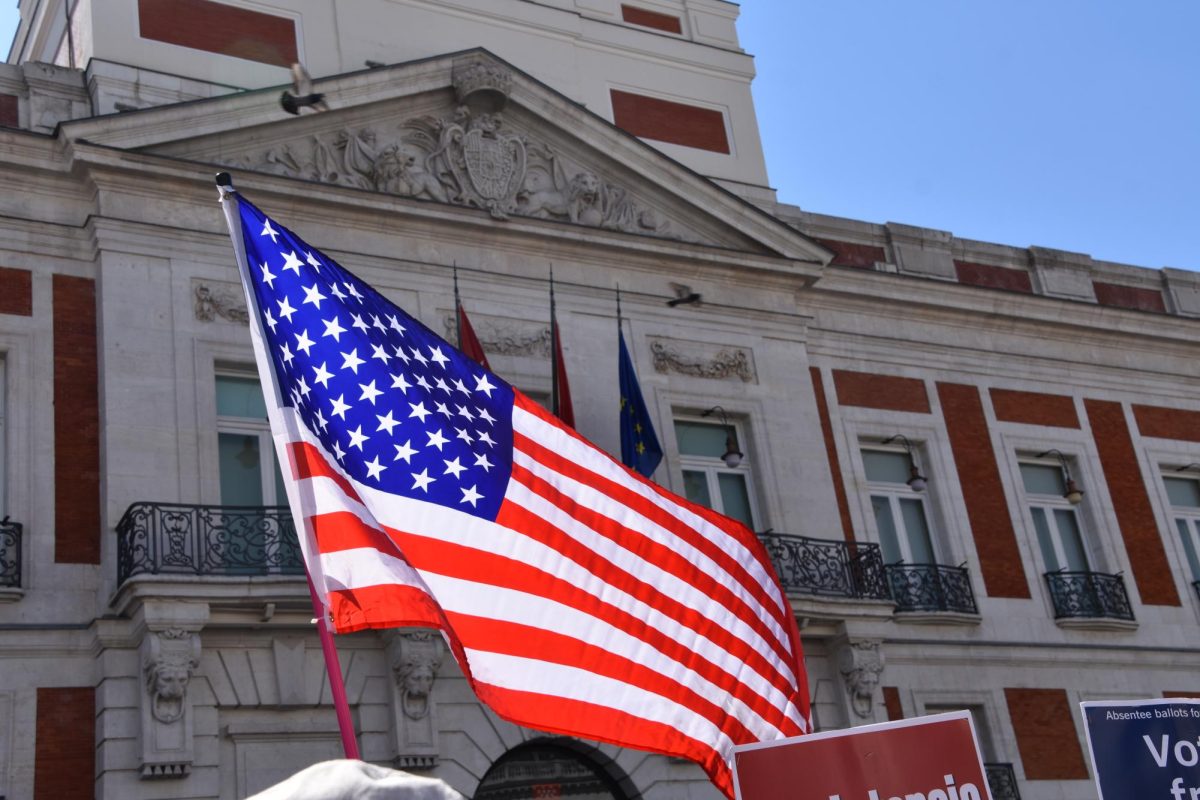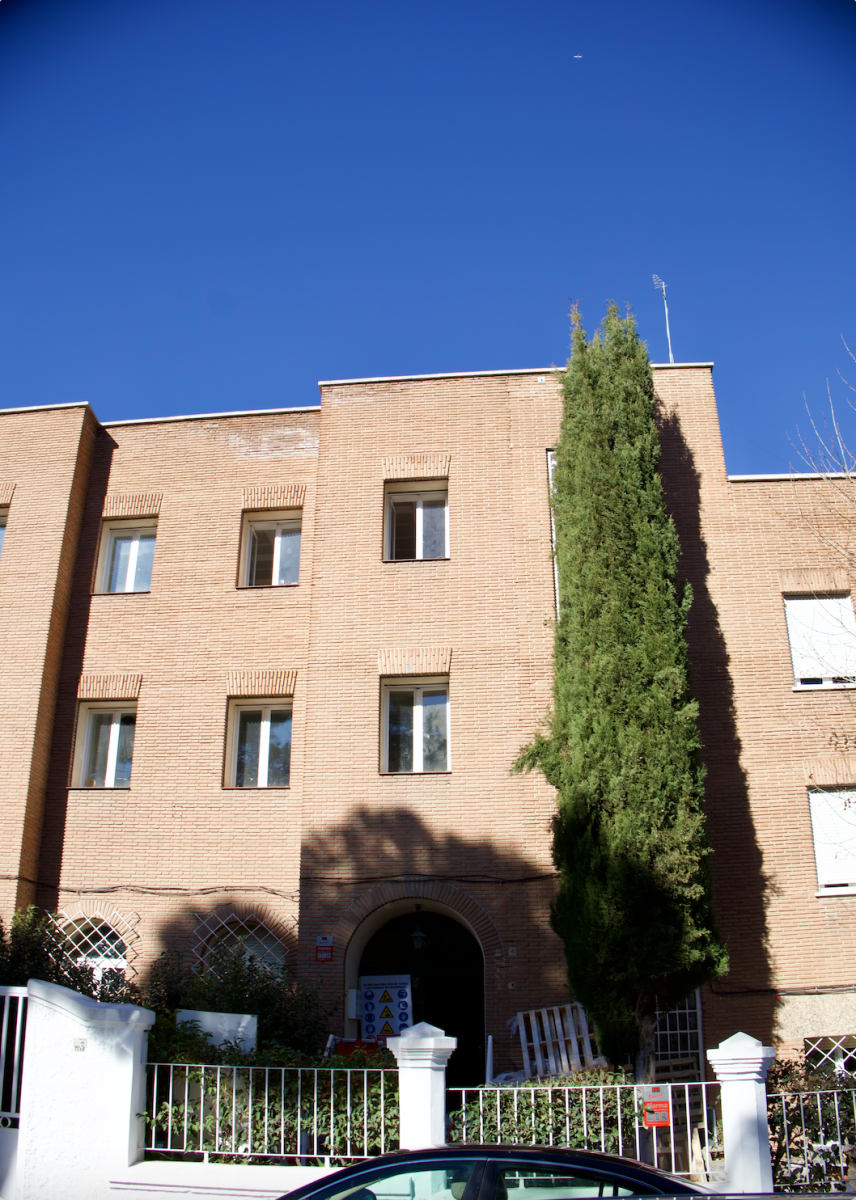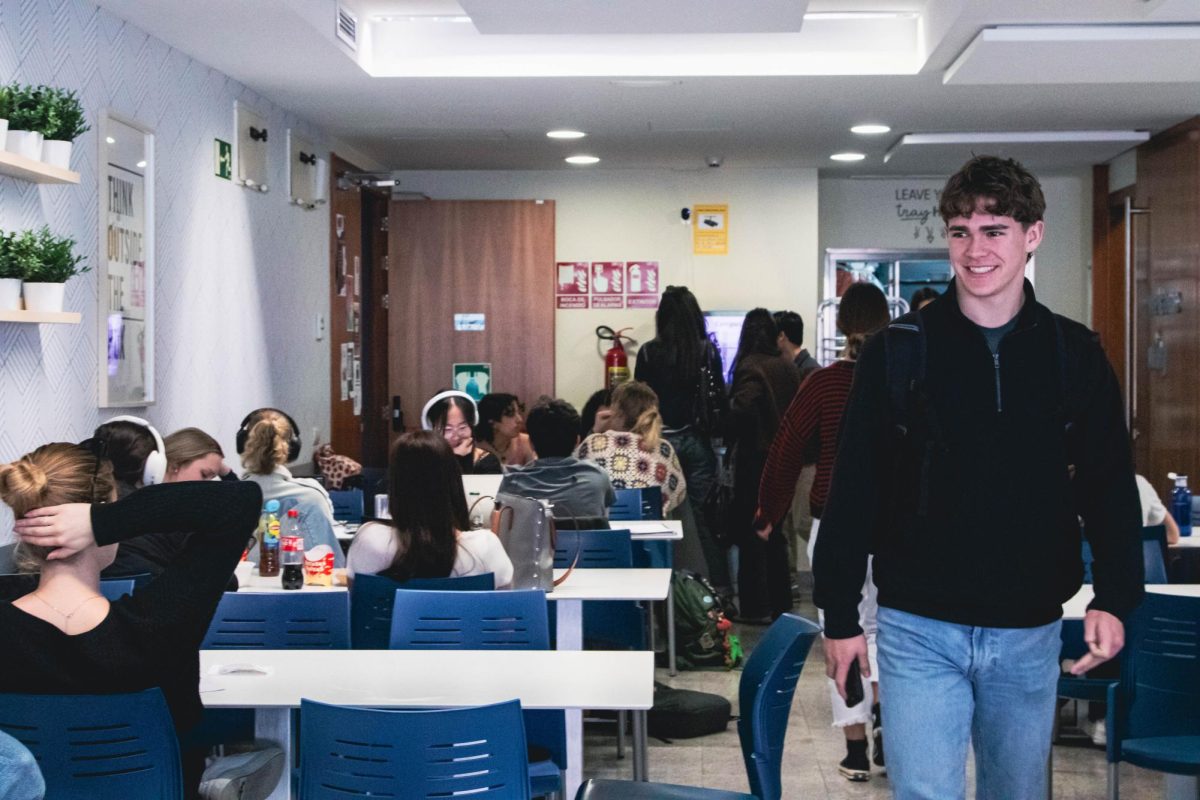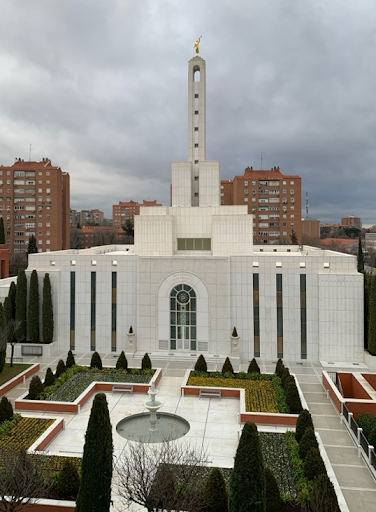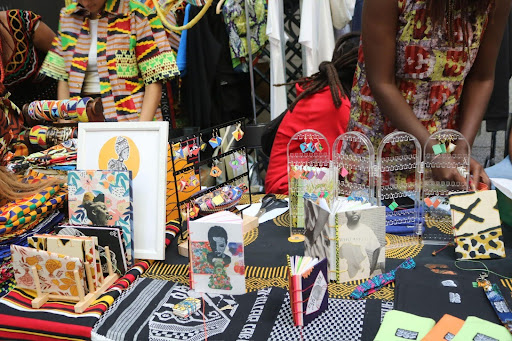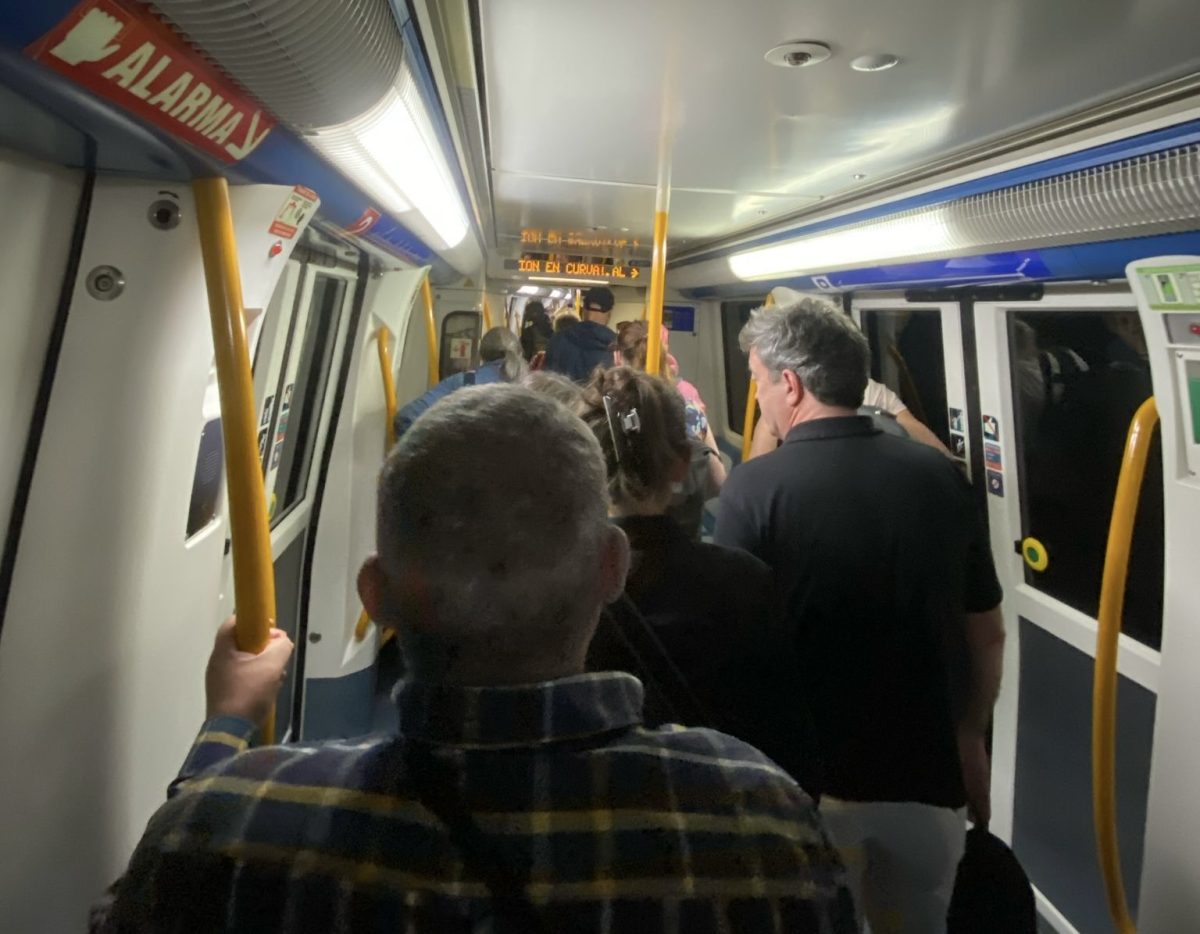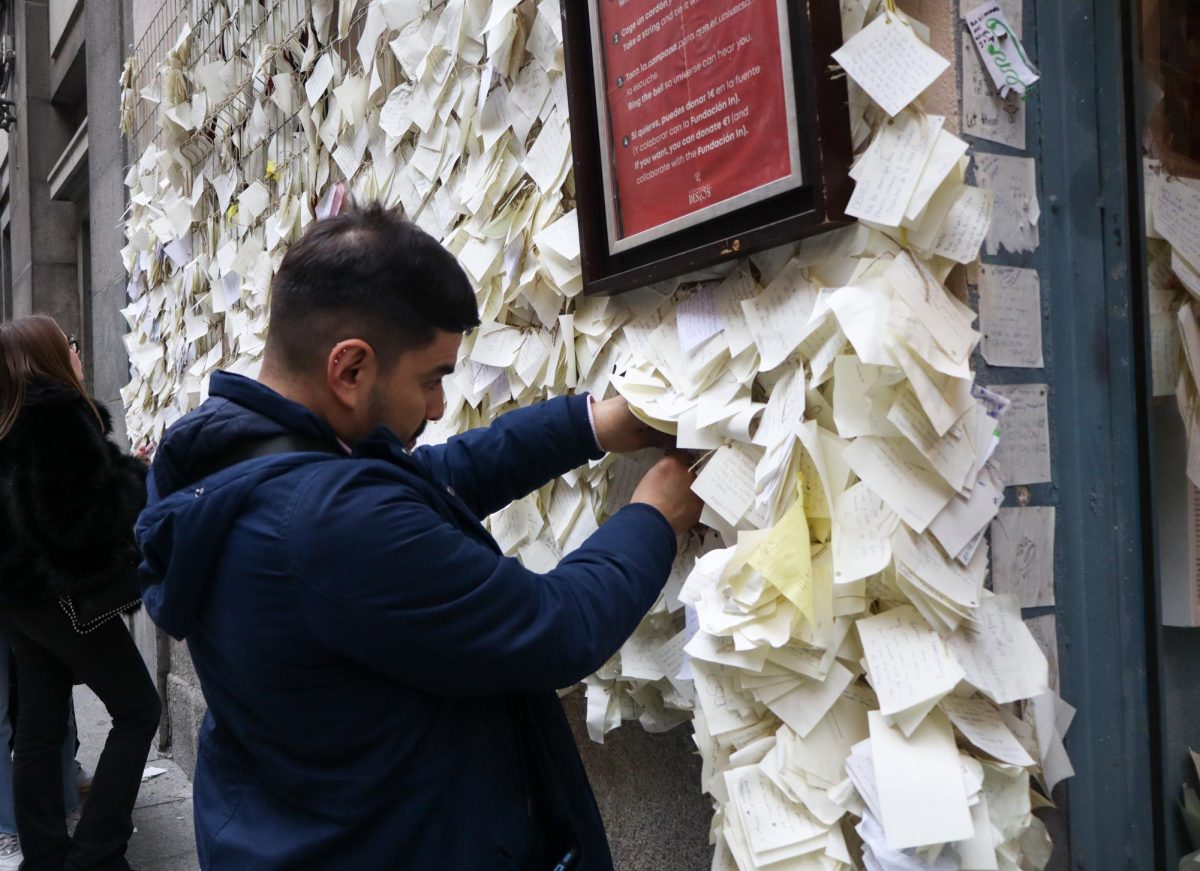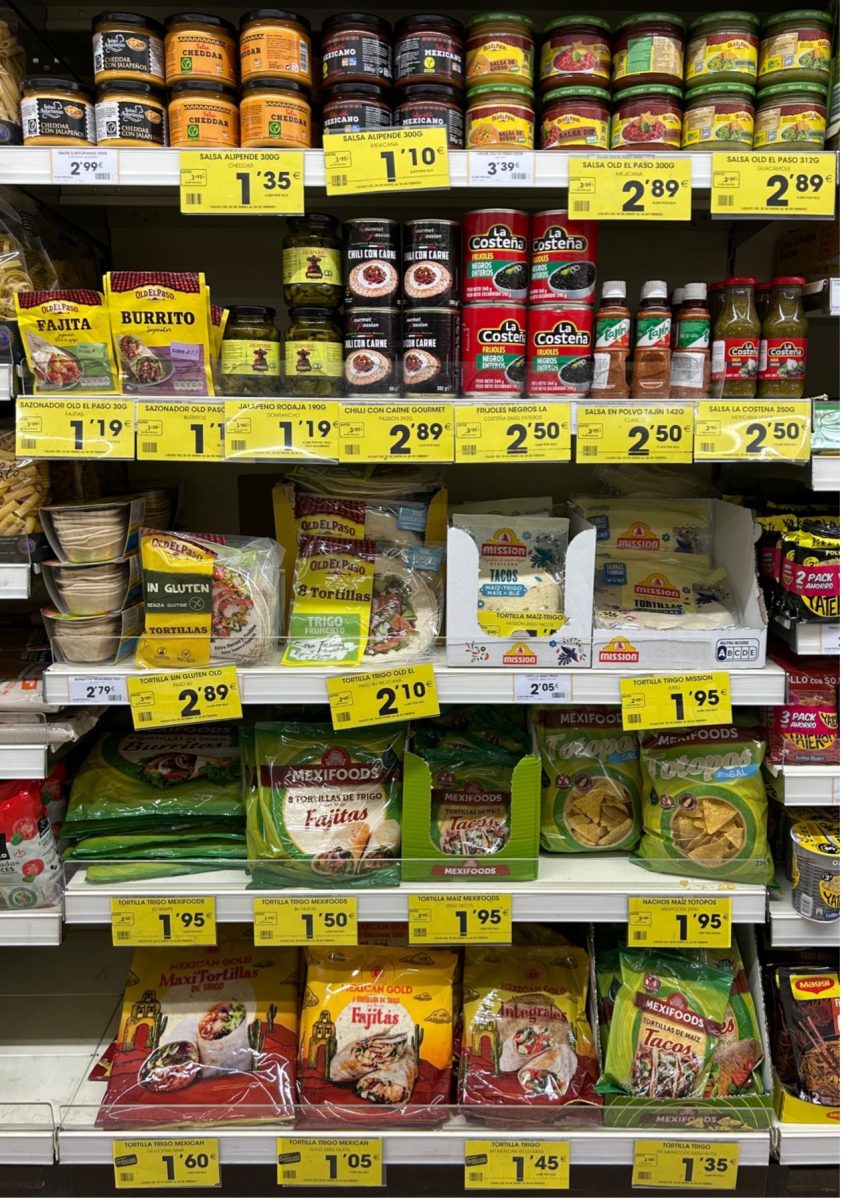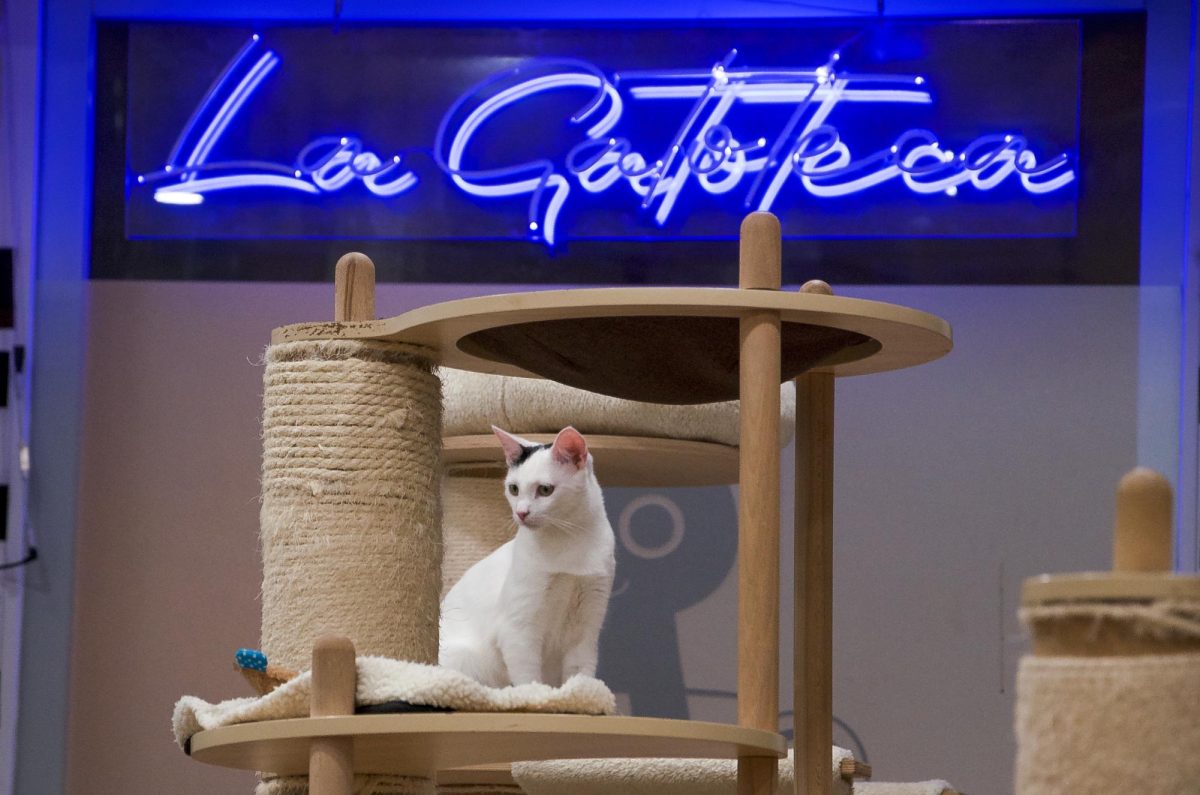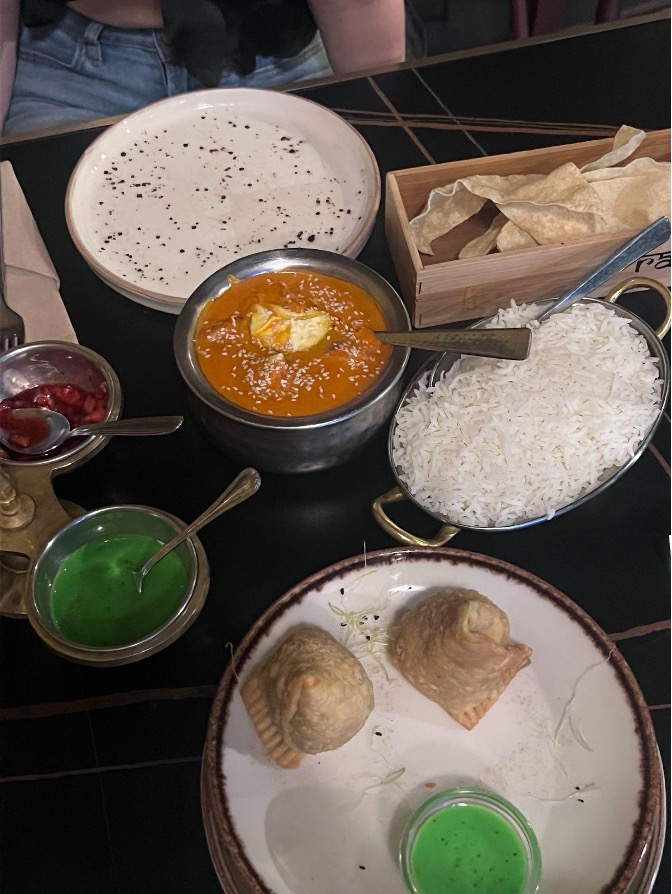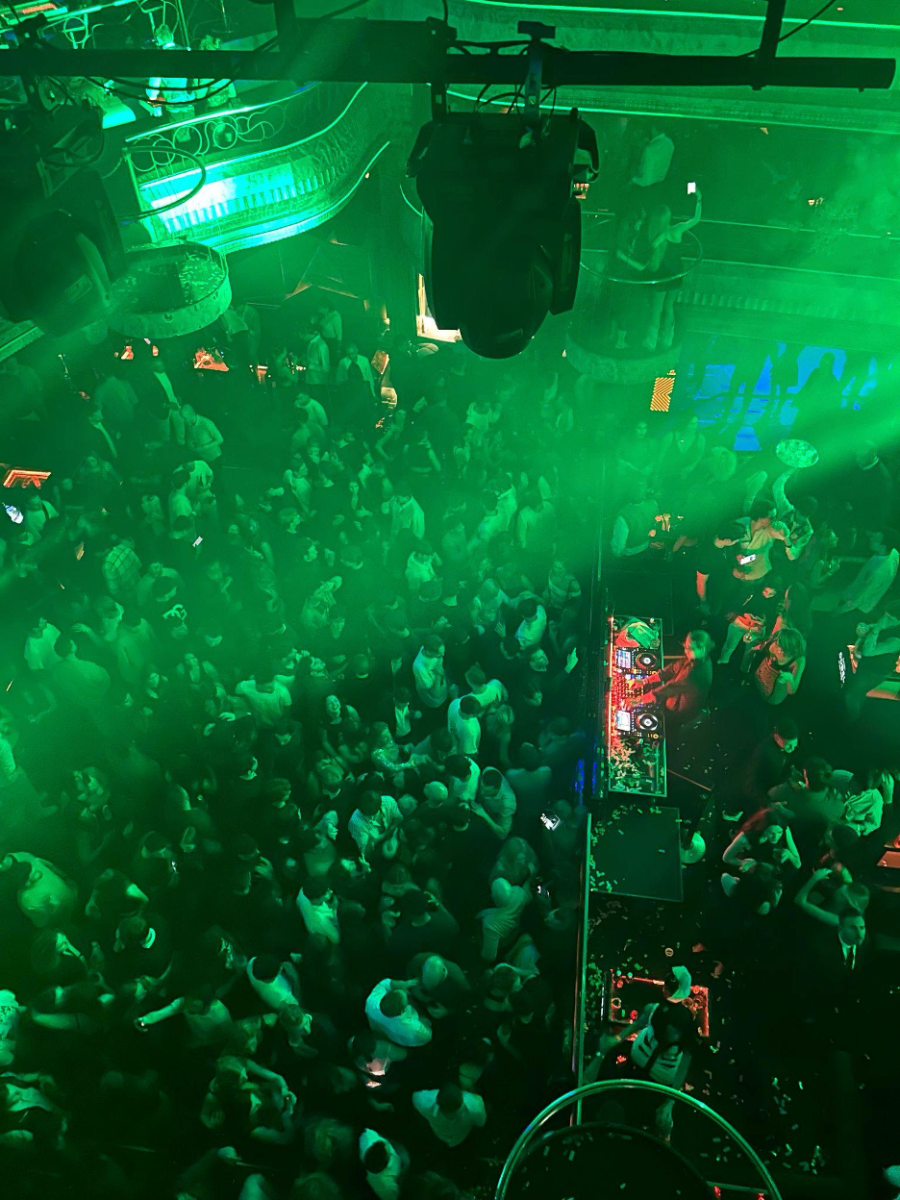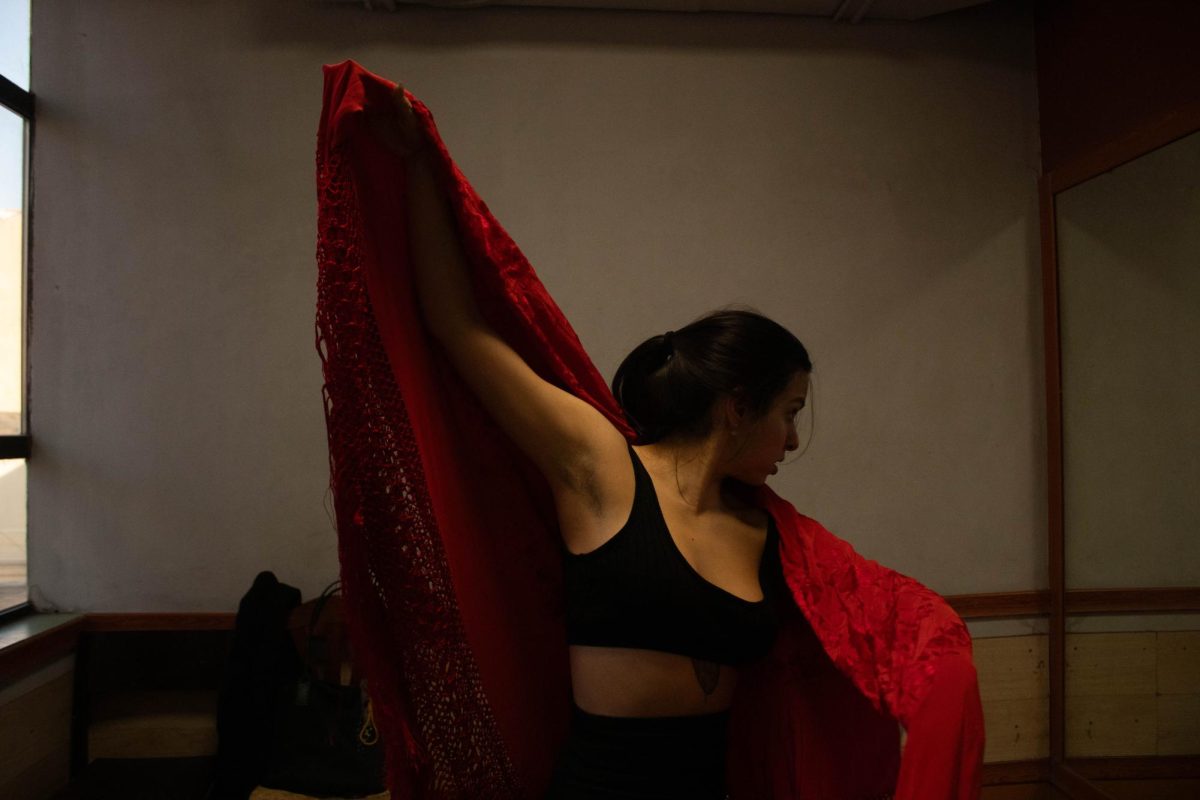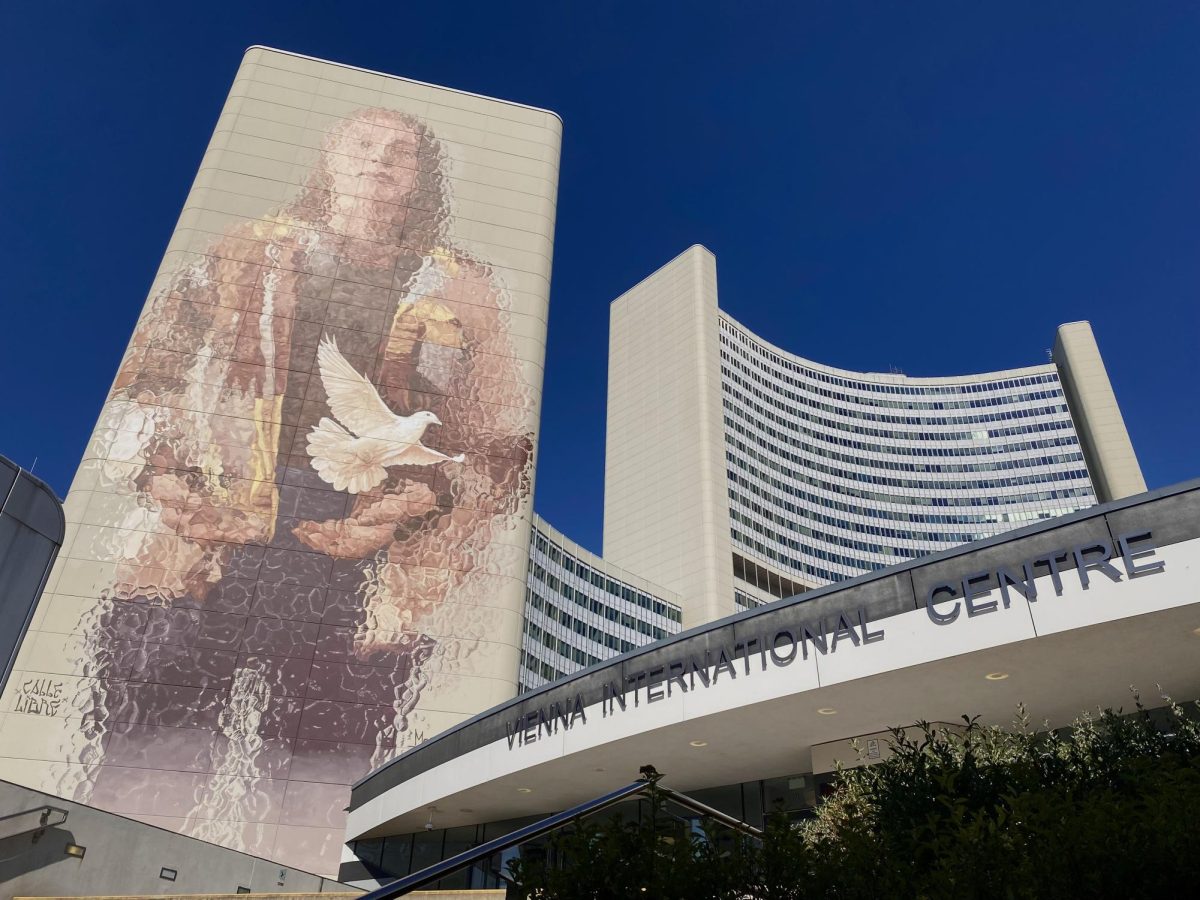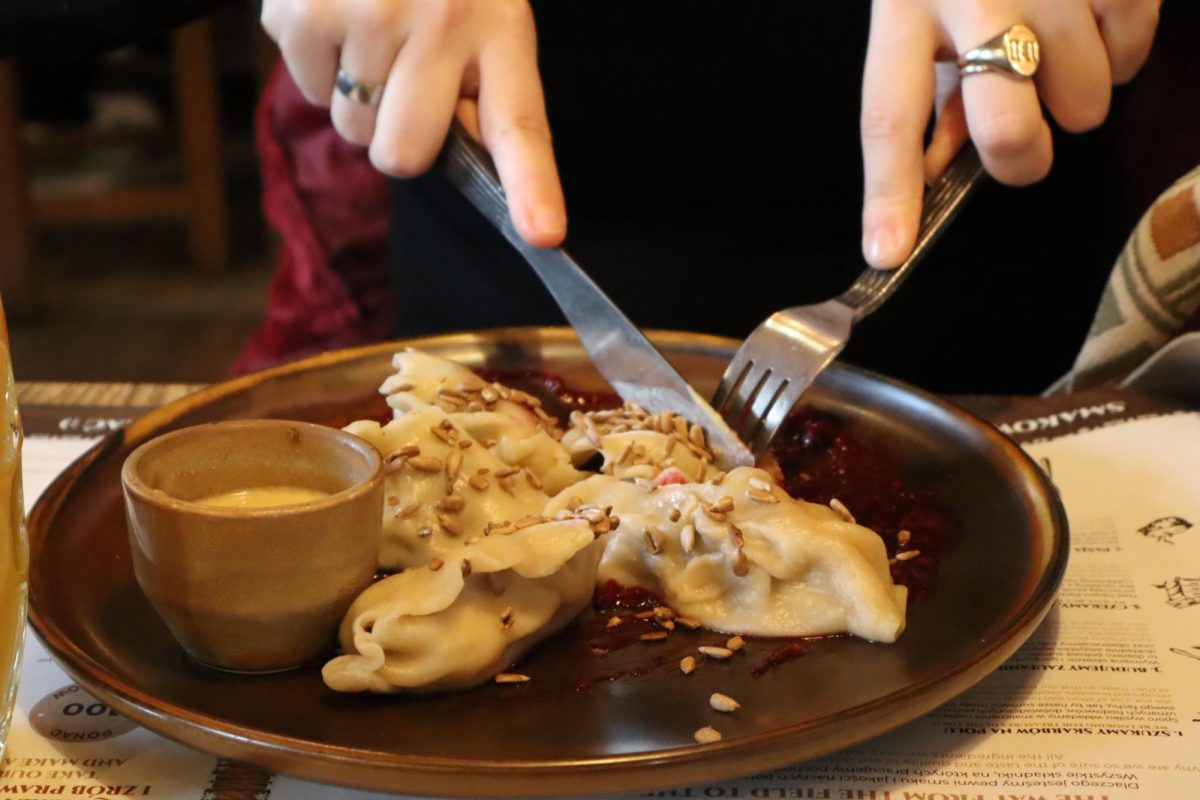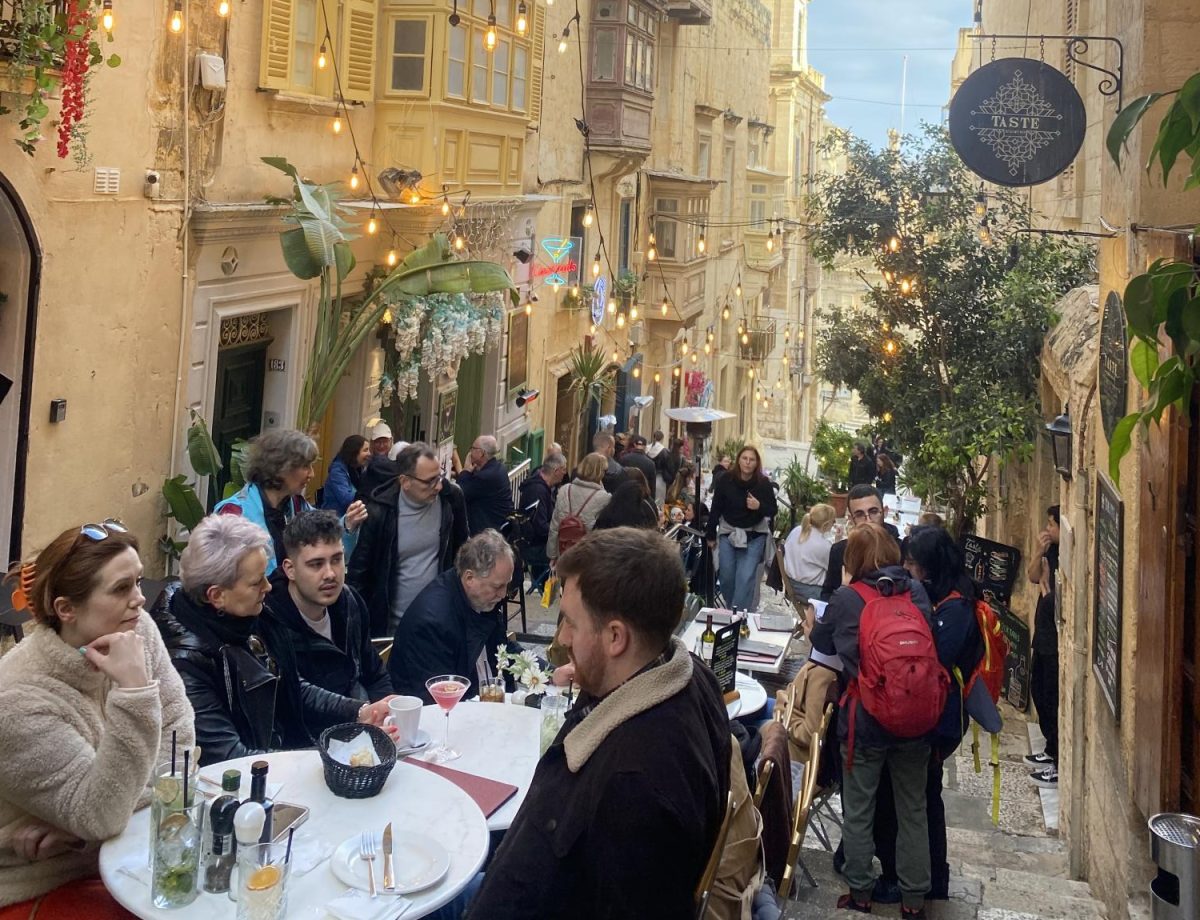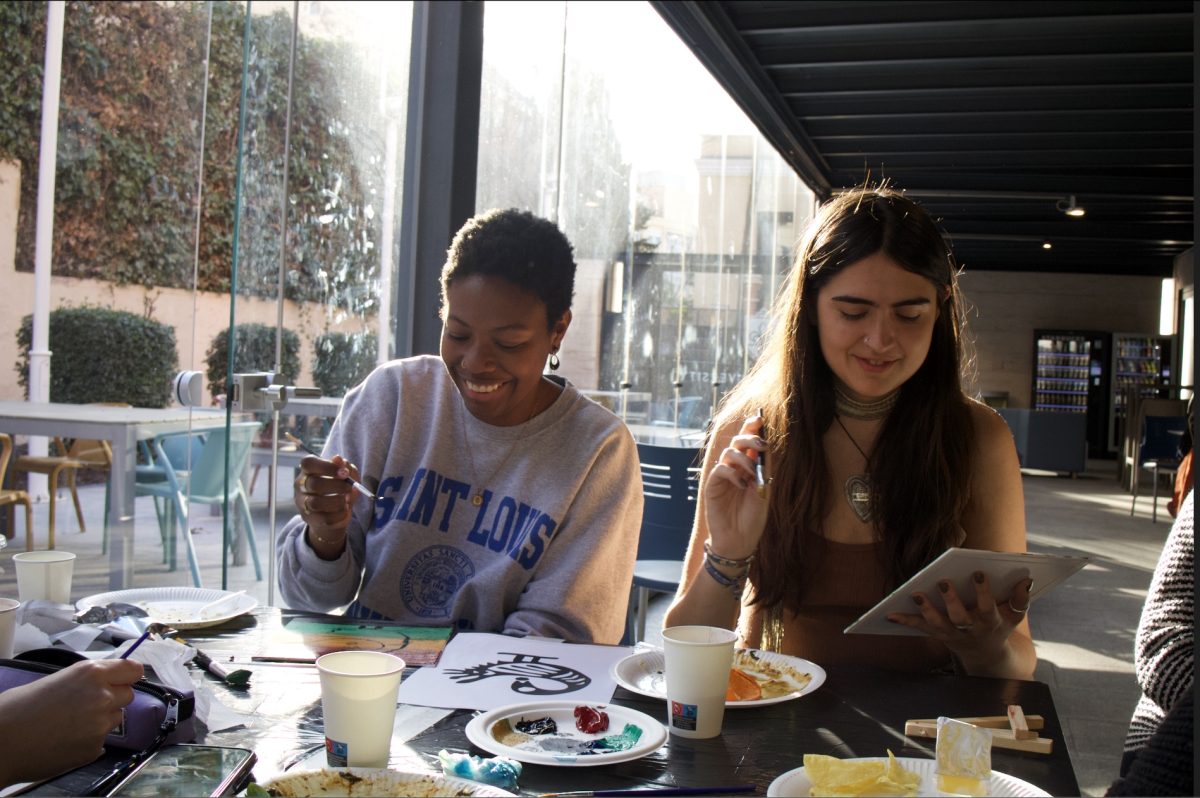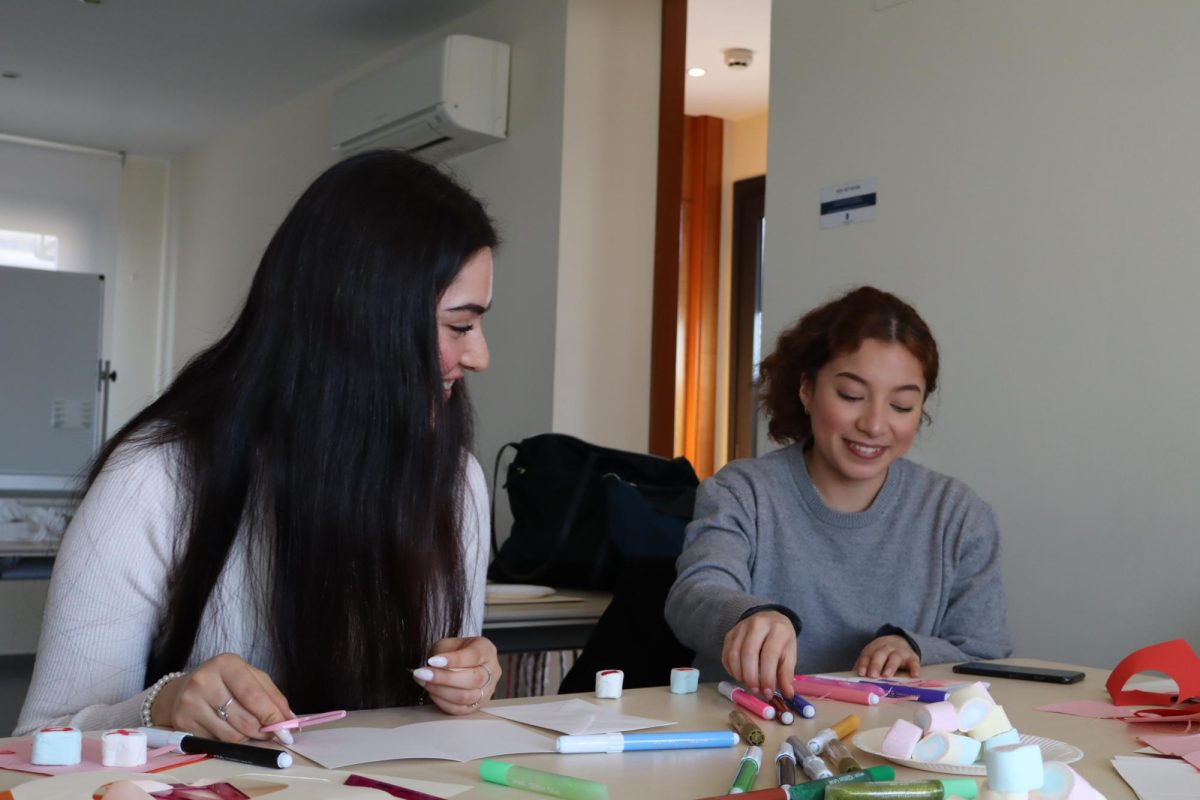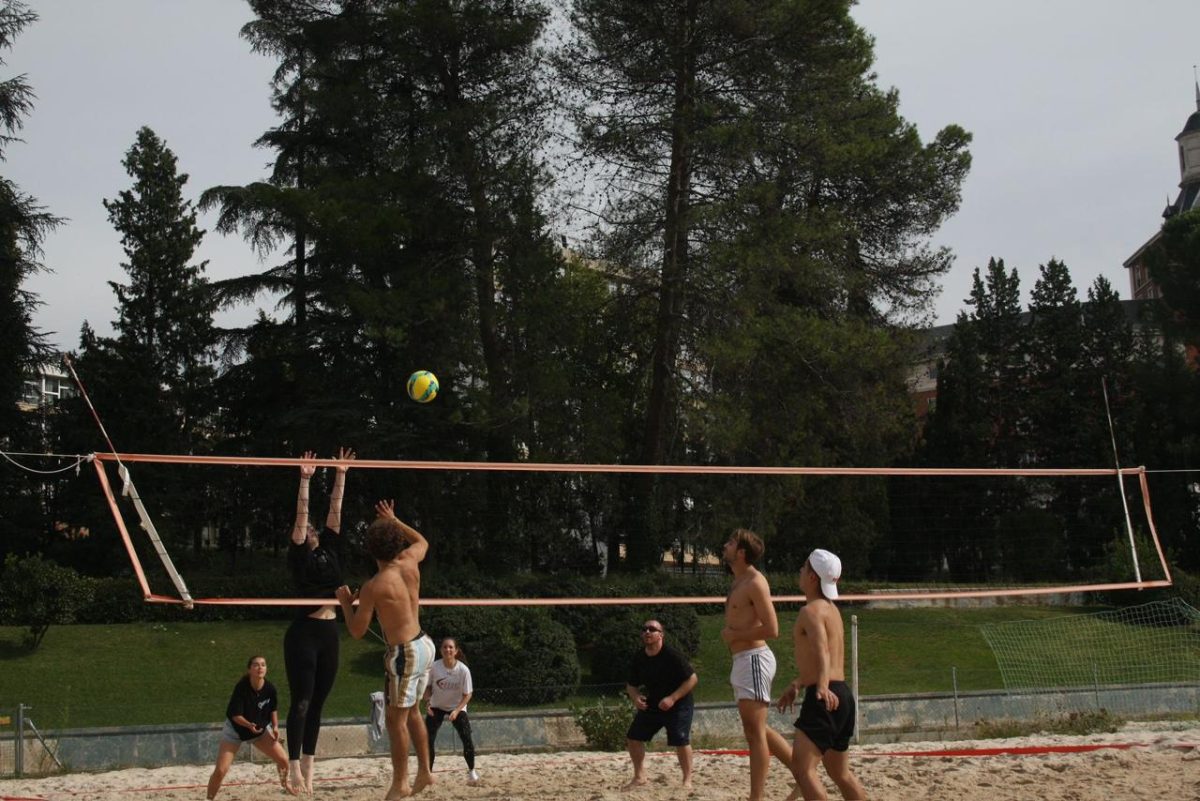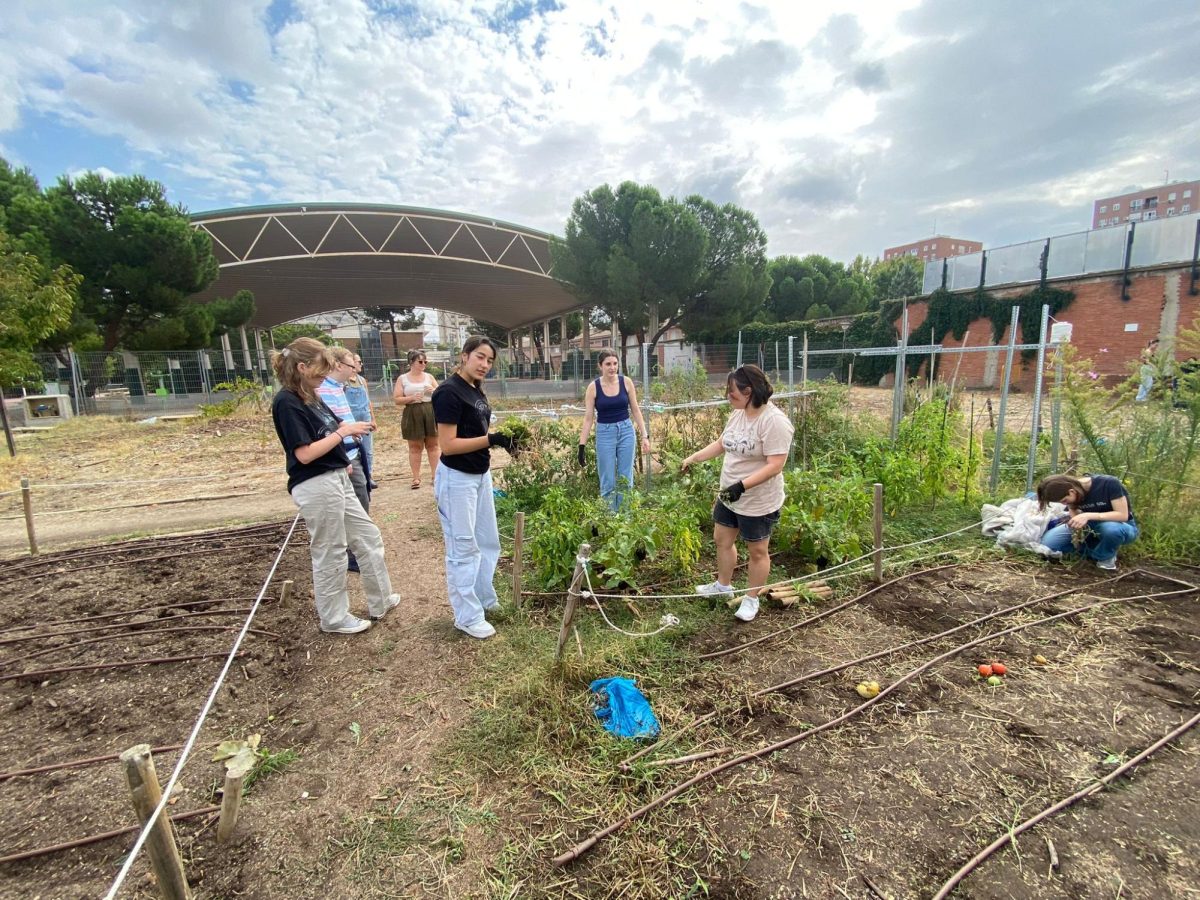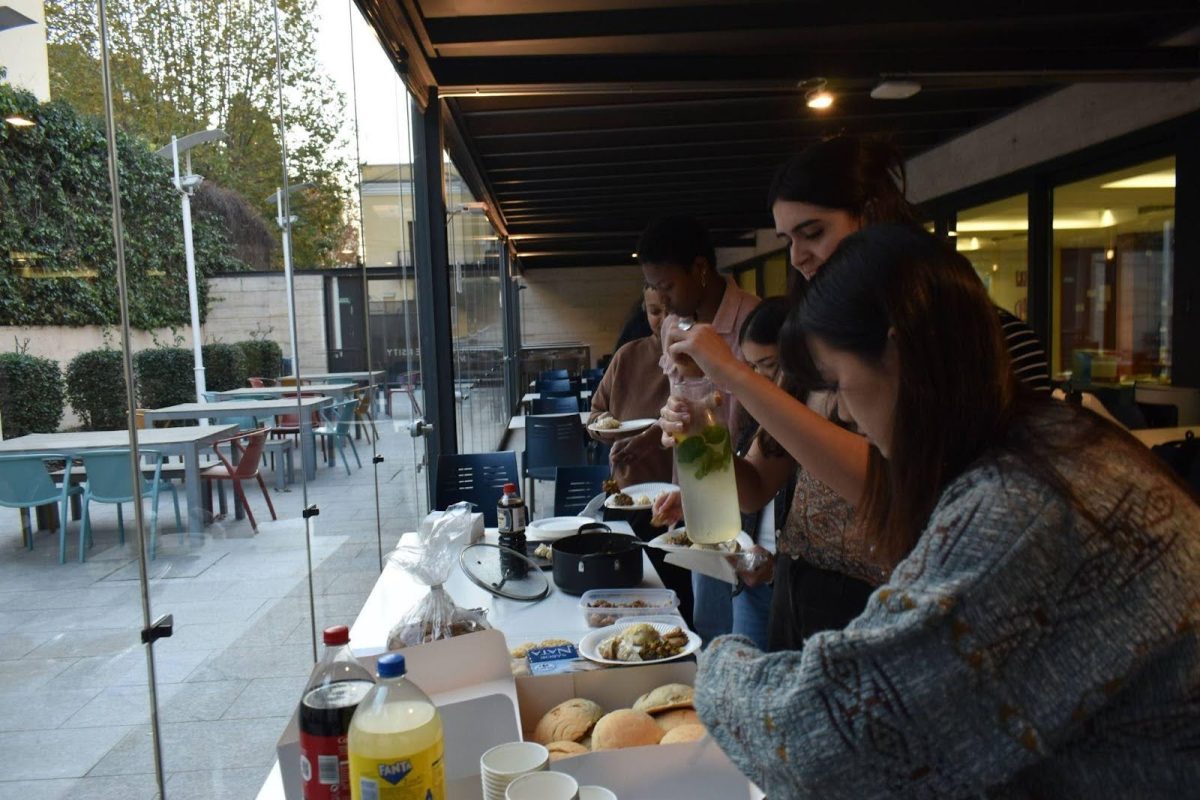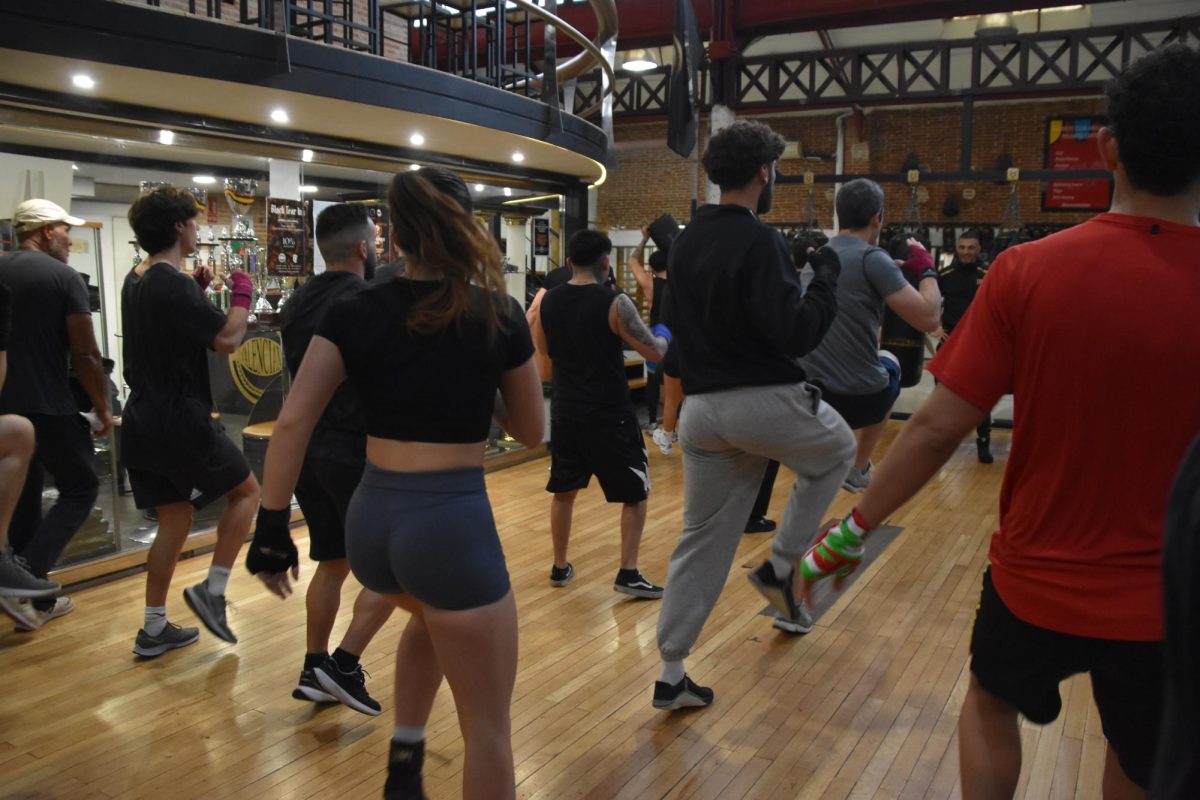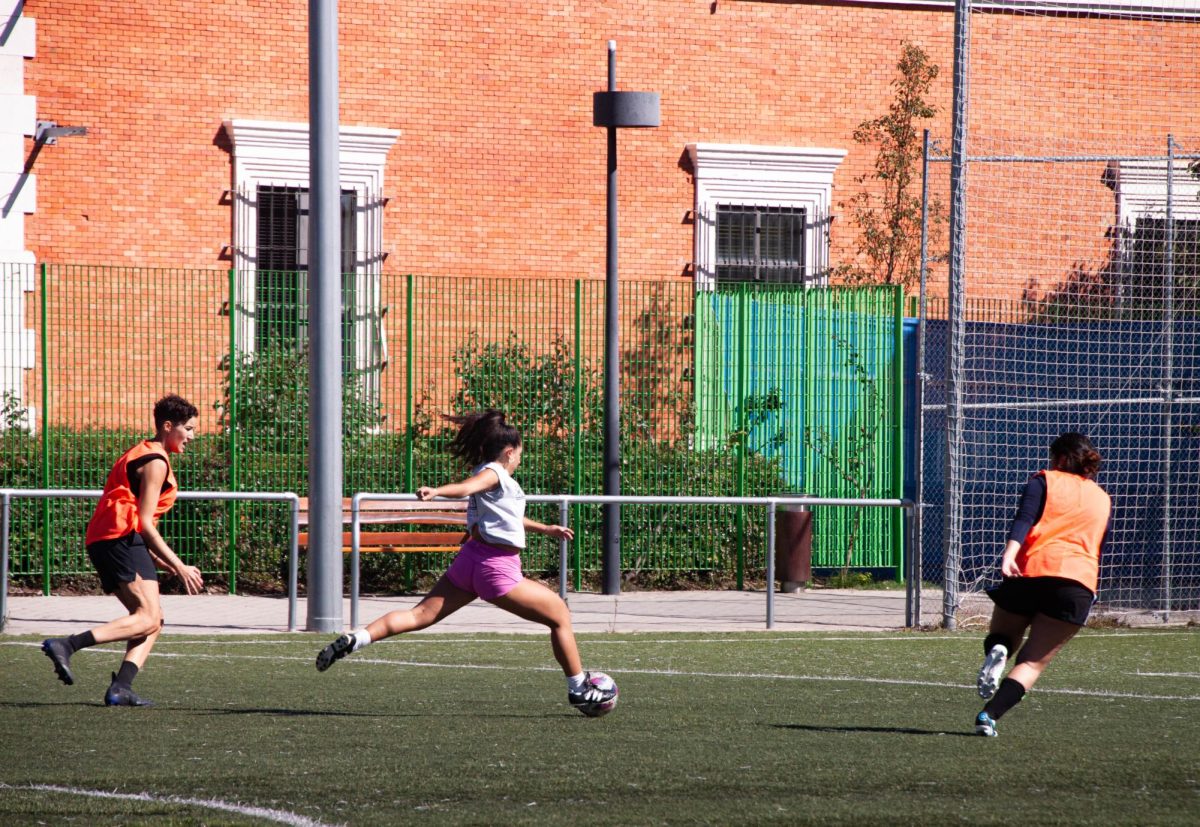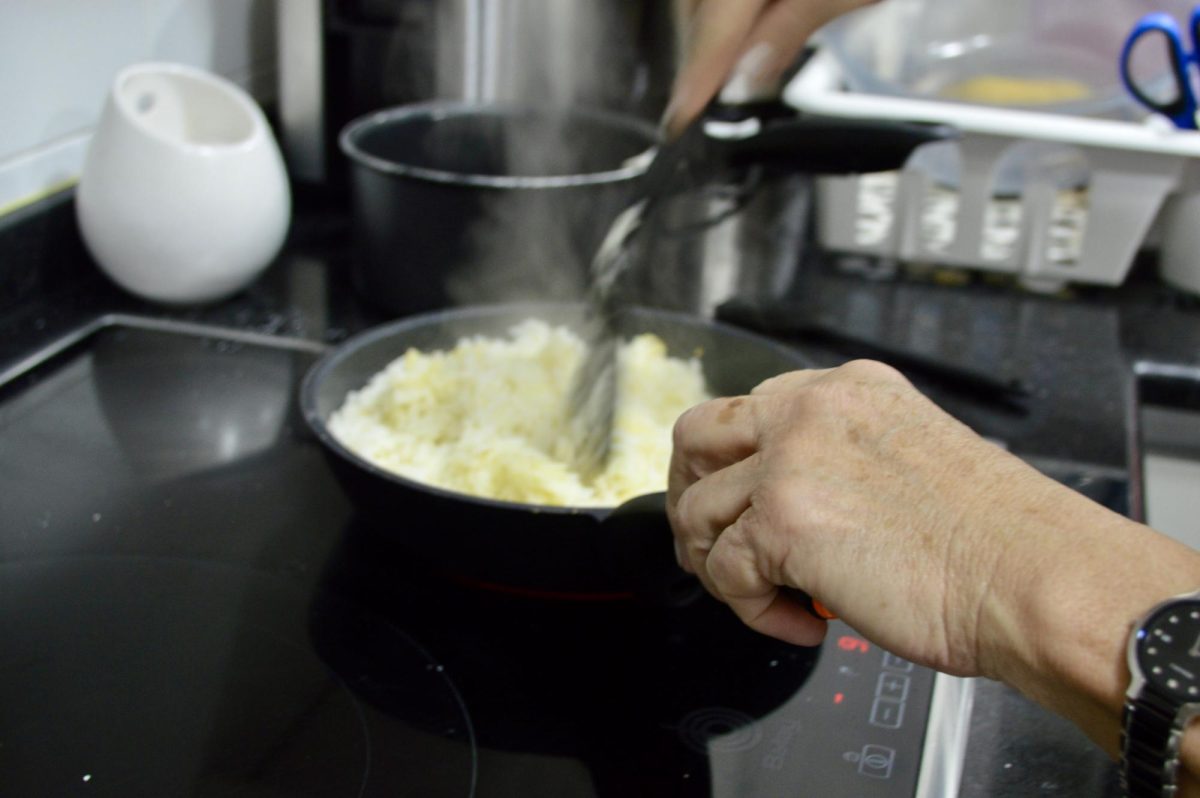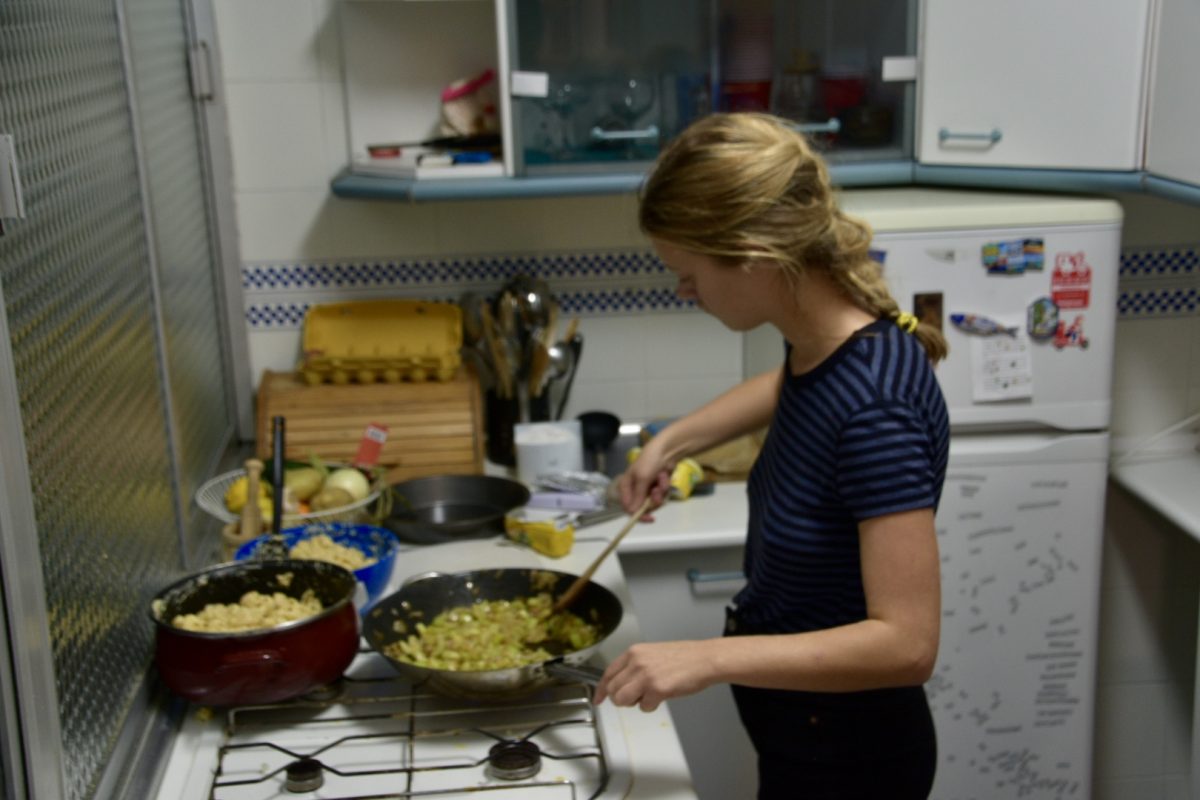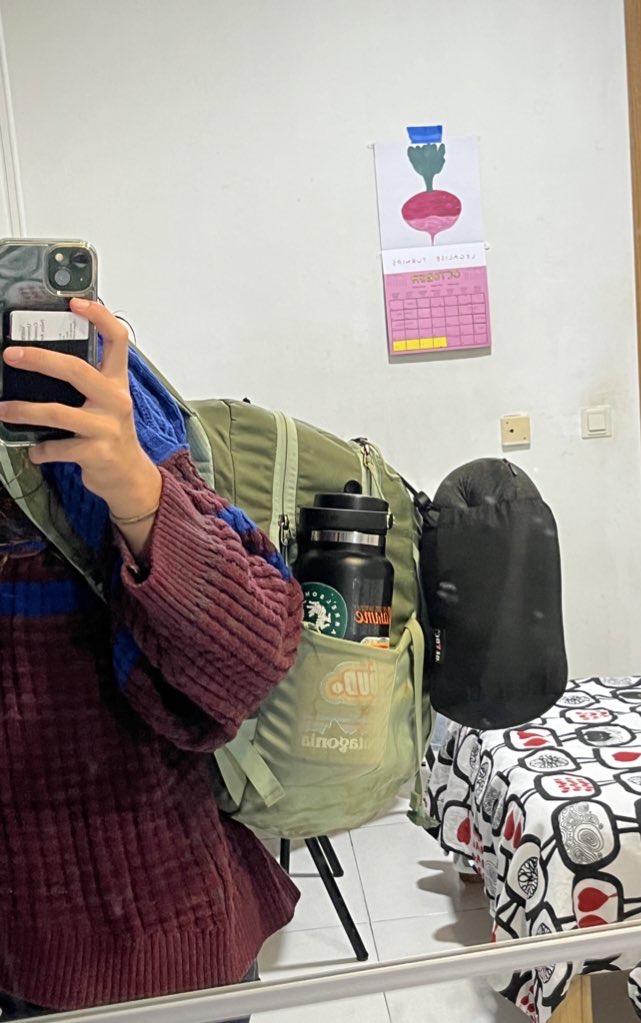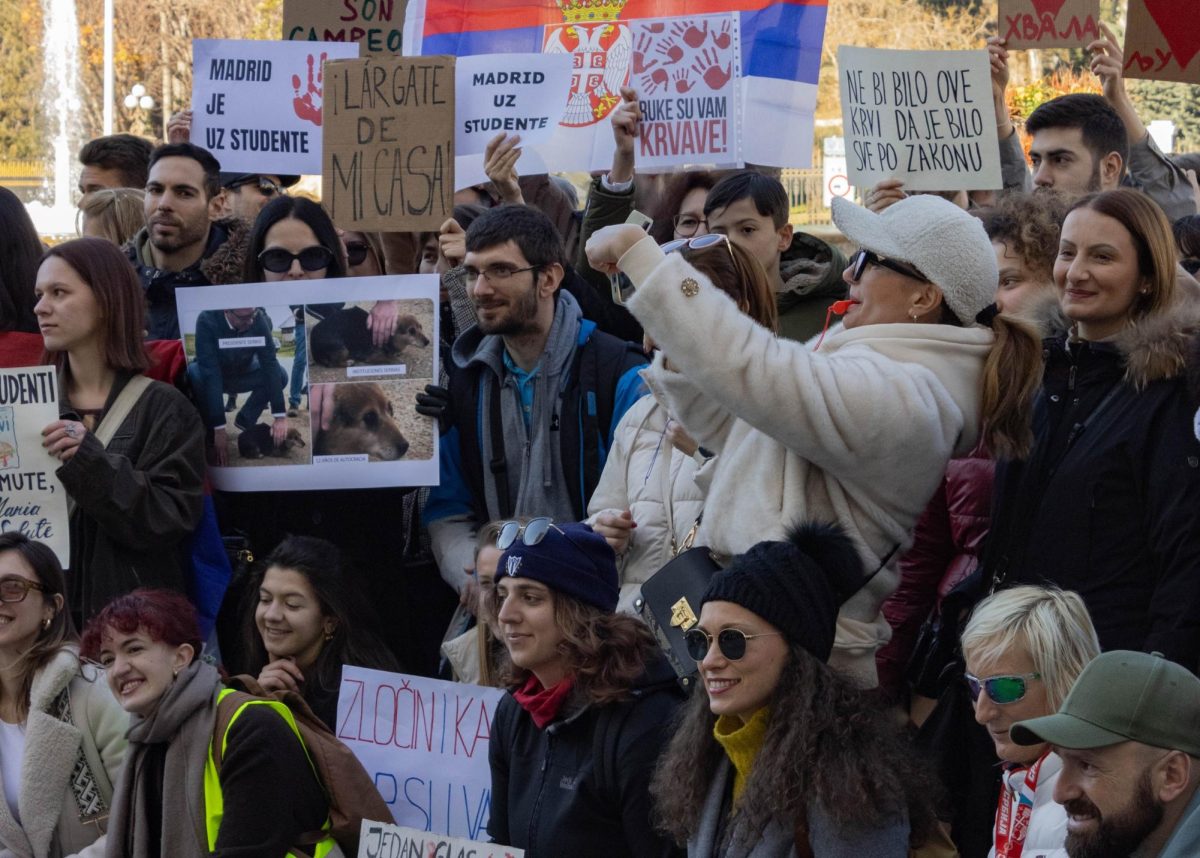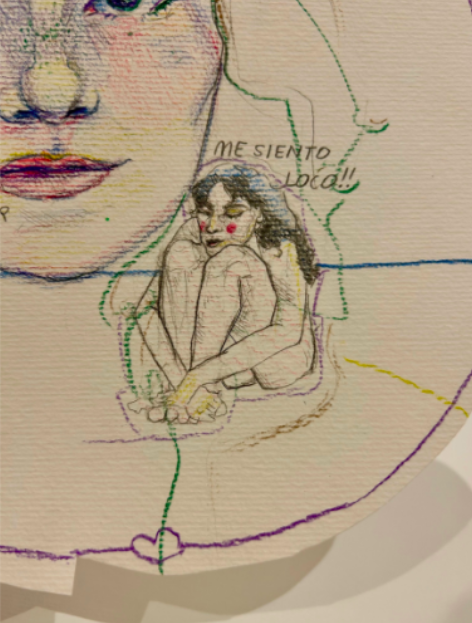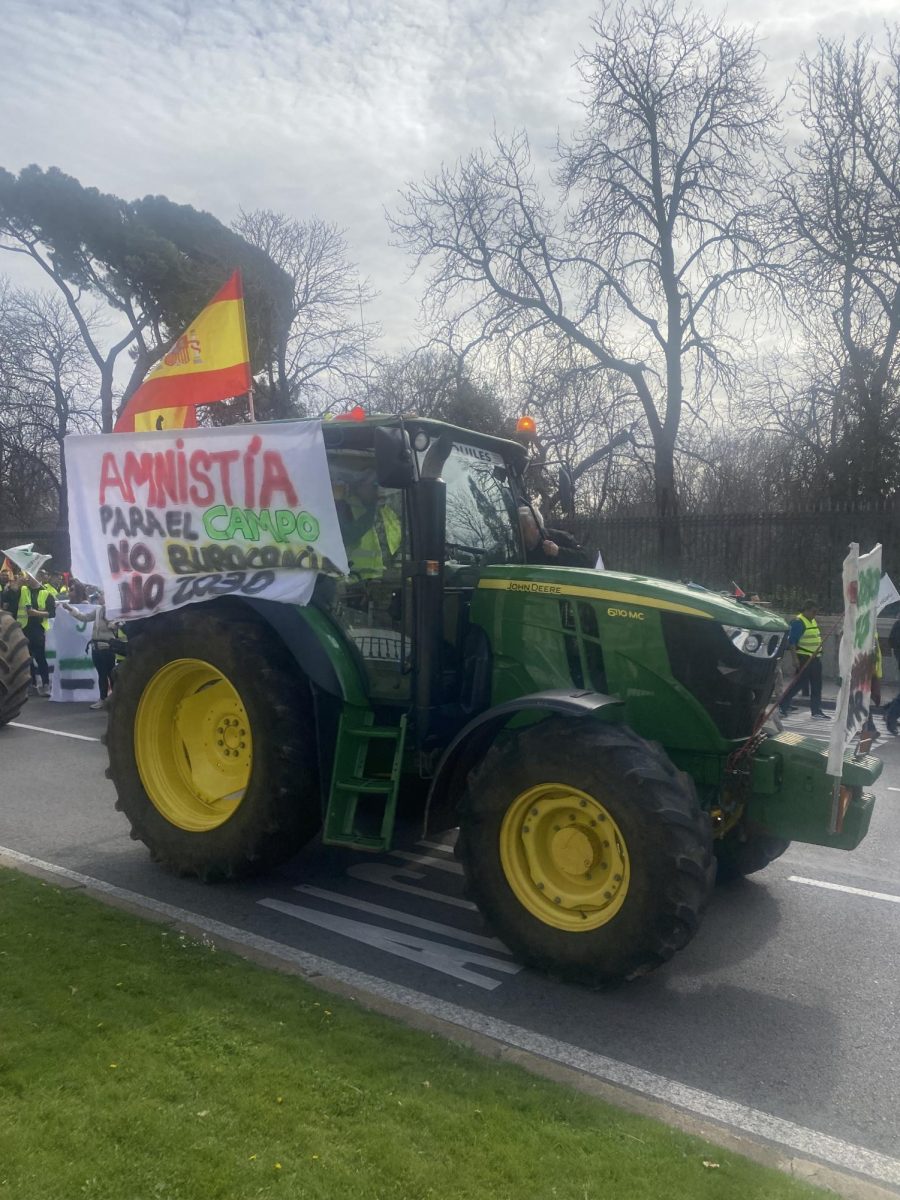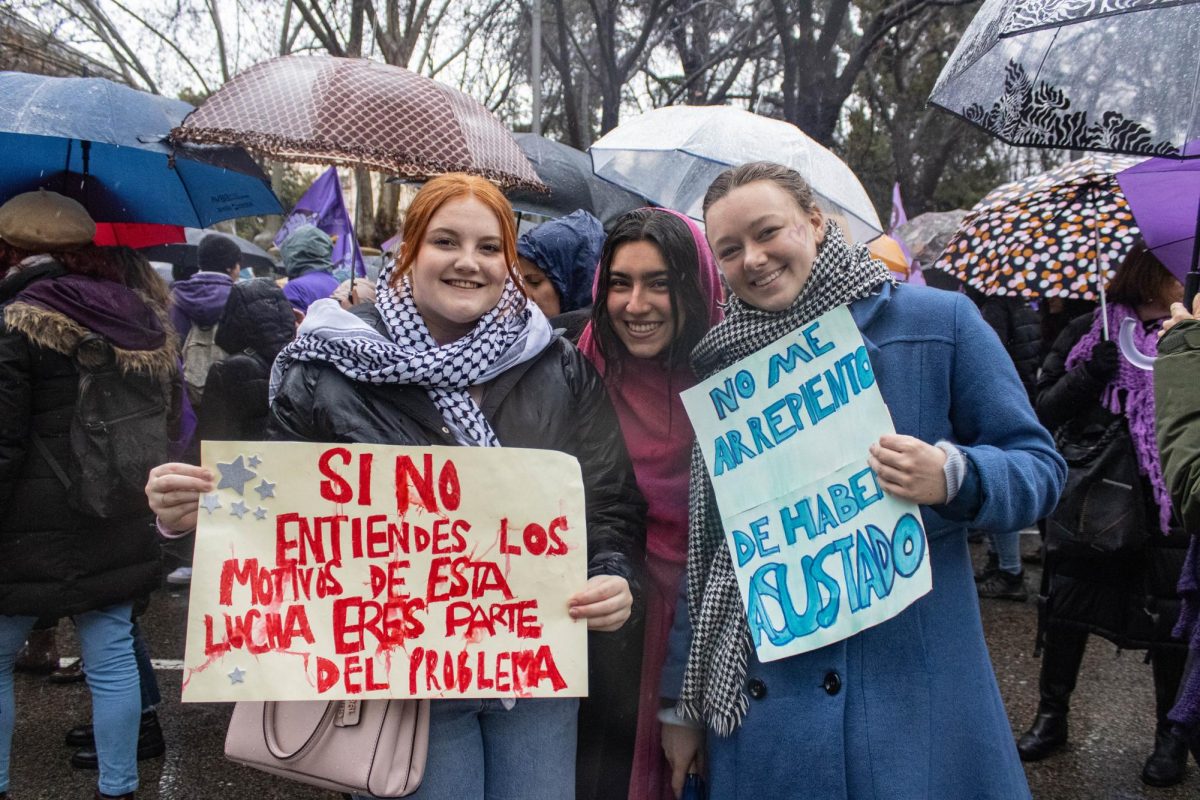Many students found their paths blocked through the center of Madrid mid-February by an unusual traffic jam. It wasn’t the tangle of taxis, buses and Vespas they have come to expect, but a clanging, whistling caravan of tractors protesting European agricultural policies.
As many as 1,500 tractors, other farm vehicles and roughly 4,000 farmers blocked central roads in Madrid, including the Puerta de Alcalá, to protest cheap imports of non-European Union produce, rising costs of materials and E.U. agrarian measures to fight climate change, according to the Spanish newspaper El País. The Feb. 21 protest was one of many throughout Europe.
Vicente Barbato, who studies computer science at Universidad Carlos III de Madrid, had to find a way around the protest to get to work; he usually takes the bus. “I had to ride a bike to get around the blockages,” he said. “The Ministry of Agriculture is in Atocha, so that’s why they stopped there. It smelled like a farm.”
On Calle O’Donnell, business as usual was interrupted by the loud blares of tractor horns, whistles, drums, and cowbells at noon. Smartly dressed workers emerged from offices, conference rooms, and homes to investigate the racket. Some took photos or videos and returned indoors, while others offered cheers of encouragement for the farmers. One farmer propped up a leg of ham on an attachment to his tractor, sliced it and and passed it out as a peace offering to passersby, apologizing for the noise. The ham was warmly accepted.
Farmers called for fairer treatment from the E.U., which has tried to encourage farmers to take measures to adapt to climate change.
“We are farmers, we don’t want to deal with bureaucracy from Brussels,” said one middle-aged farmer in a bright yellow vest, the uniform of many protesting that day. “The politicians don’t know the state of things as they actually are in the fields in the different regions in Spain. Of course we want to care for the environment and preserve nature, but with common sense.”
The line of tractors stopped a few times on Calle O’Donnell before reaching Calle de Alcalá and continuing towards Retiro, where more farm vehicles awaited. At one side of the Puerta de Alcalá, some farmers brought their children, who smiled and waved from the tractors to those below. On the other side of the arches, a couple of women in fluffy coats and sunglasses posed for pictures in front of the spectacle.
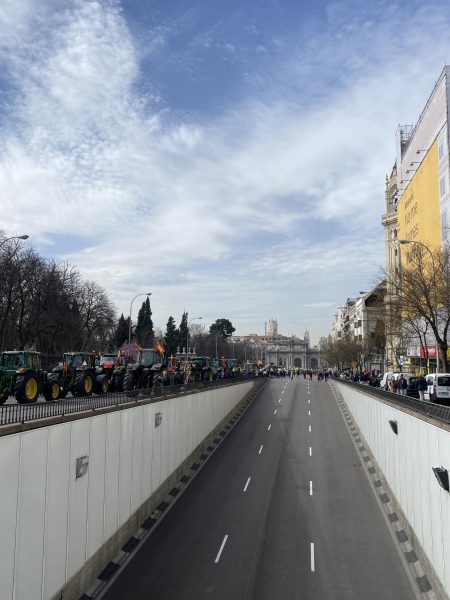
After the lines of tractors stopped, protestors gathered on foot, waving Spanish and regional flags, handmade signs, and banners for the “Unión de Uniones,” an umbrella group of agrarian unions that organized the demonstration. A small group of women, all farmers from Burgos, held handmade signs. “Before, we wrote down the chemicals we used in notebooks for the government — now, they want us to do it on the computer,” one of the women said. “We are farmers. We want to do our hard work in the field, not on the computer. It takes forever.”
A line of police in riot gear and armored vehicles stretched across the road, blocking protestors from continuing further. The volume of protestors’ chanting increased and people on the sidelines egged them on, calling for them to advance toward the police line while hurling insults at officers standing less than two meters away. When the crowd surged toward the line, a few broke away and ran ahead, trying to get past police. They were clubbed, further angering the crowd.
The farmers eventually reached the Ministry of Agriculture, where they called for measures to keep farm produce competitive.
